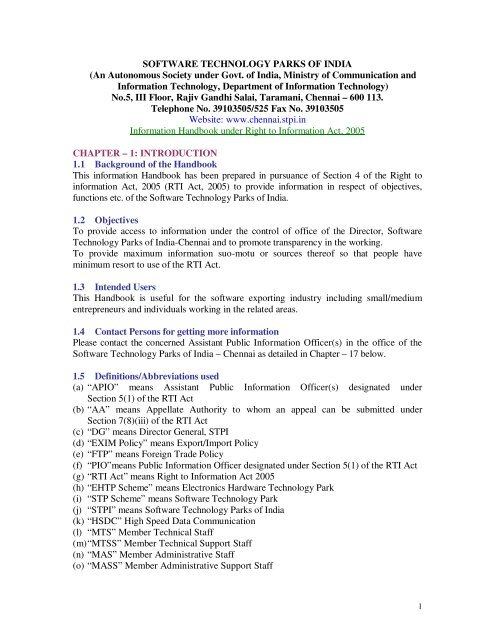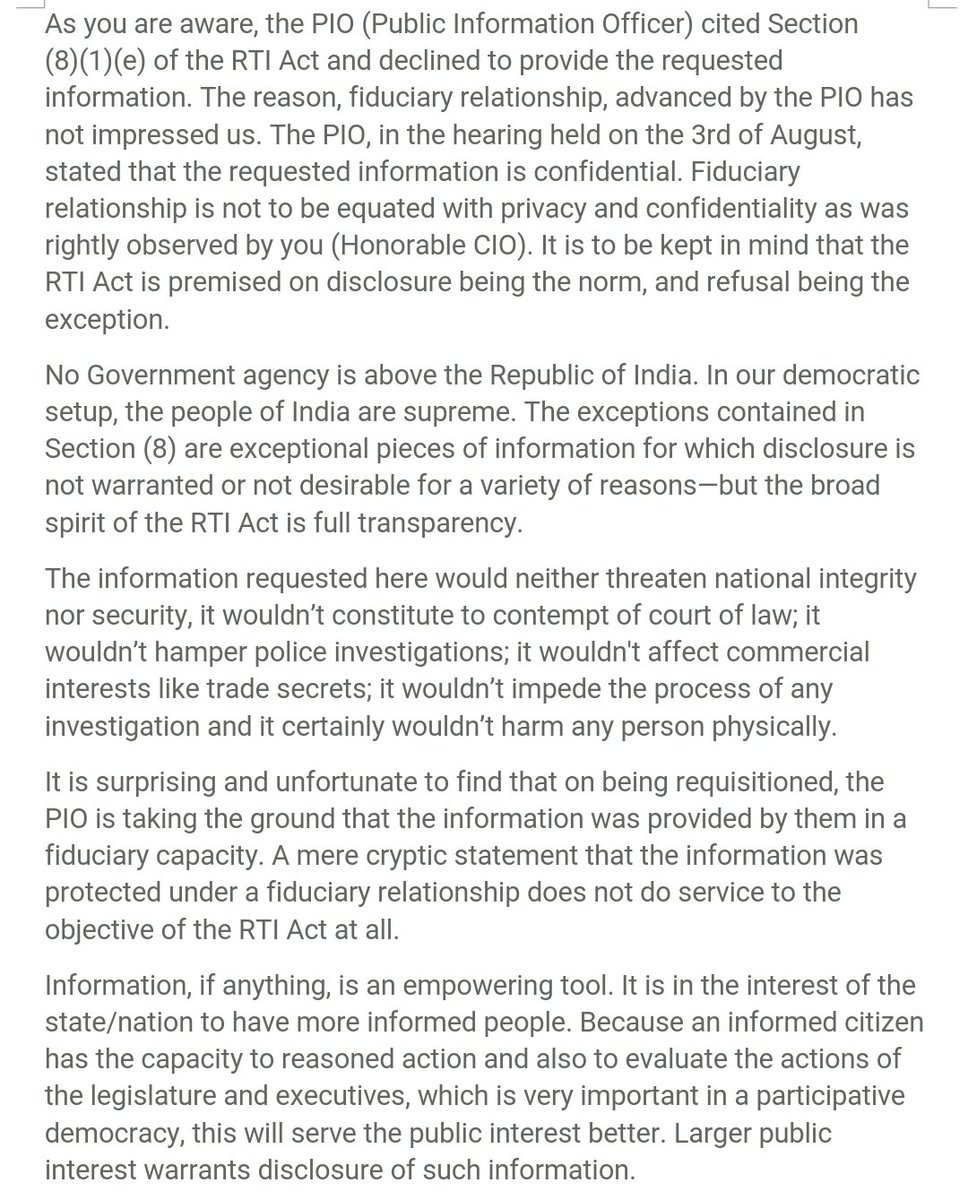Objectives Of Rti Act India


However, article 19(1)(a) of the India’s constitution provides “Freedom of Expression”, as a Fundamental Right and as well as in the matter of State of UP v Raj Narain (1975)4 SCC 428, Supreme Court of India has already declared “Right To Know” as a fundamental Right under article 19(1)(a). It means to know the information any one can approach to the High Court or Supreme Court directly, but this efforts was not enough to avail the information properly and systematically as well as uncertainty was their regarding its applicability which was creating ambiguous situation and facing difficulties to avail the information from the various agencies of government and non-government organizations. Therefore in order to provide systematic and concrete mechanism Parliament of India enacted “Right To Information Act 2005” which facilitate the citizen to avail all kind of information with reasonable restriction mentioned as a general and specific exception under Section 8, 9, and 24 of the same Act. According to Section 3 of RTI Act only citizen of India is eligible to file the application for any information subject to this Act but the guideline issued by Ministry of Personnel, Public Grievances & Pensions Department of Personnel & raining, through their letter No.1/69/2007-IR dated 27 th February 2008, directs that, if any RTI Application filed on the behalf of organization, in such case, instead of rejection that should be accepted as a personal application on the behalf of that name of the person mentioned in the RTI Application. The expression “ under the control of public authority” which is perused in final part of the Section 2(f) while defining the word “Information” that, “ information relating to any private body, which can be accessed by a public authority under any other law for the time being in force” means citizen can access the information which is directly related to the activities of that Public Authority as well as those information regarding private body which is held by that Public authority. So in this way indirectly citizen can access the information related to the private bodies from the government offices who are authorised to control or monitor them, or connected in any way under any other laws for the time being in force. To promote transparency and accountability in the working of every public authority.This Act ensure to eradicate the any type of corruption in Public Authority by providing mandatory obligation to the Public Authority to make ensure to disseminate the information sought by the Indian citizen within a certain time period with nominal fee.
Rti Act 2005 In Hindi
As well as Section 4 impose Public authority to maintain and provide access all the information specified in the Section 4 (b) by applying suo motu (self initiative) action. So, due to the mandatory dissemination of information in the accessible format definitely transparency and accountability can established because that information not only help to aware the puple as well as could admit as a evidence in any legal procedure.
Rti Act Pdf
In earlier blog posts, India’s National IPR Policy has been discussed at length. In February 2015, were made by the Centre for Internet and Society to the Department of Industrial Policy and Promotion ( hereinafter, the “DIPP”). The response of the DIPP to these requests could be described as vague, at best. A discusses the questions, the responses and the other nuances of this endeavour at length.Having failed repeatedly in our attempts to retrieve information pertaining to the IPR Think Tank that was, essentially, in charge of formulating the National IPR Policy, we put forth an RTI request to the IPR Think Tank earlier this month. The response is awaited, at the moment. Support UsPlease help us defend citizen and user rights on the Internet!Or, write a cheque in favour of ‘The Centre for Internet and Society’ and mail it to us at No.
Rti Act Bangladesh

194, 2nd ‘C’ Cross, Domlur, 2nd Stage, Bengaluru, 560071. Follow our WorksNewsletter:Twitter (CIS):Twitter (CIS-A2K): Request for CollaborationWe invite researchers, practitioners, artists, and theoreticians, both organisationally and as individuals, to engage with us on topics related internet and society, and improve our collective understanding of this field. To discuss such possibilities, please write to Sunil Abraham, Executive Director, at sunilatcis-indiadotorg or Sumandro Chattapadhyay, Research Director, at sumandroatcis-indiadotorg, with an indication of the form and the content of the collaboration you might be interested in.In general, we offer financial support for collaborative/invited works only through public calls. About UsThe Centre for Internet and Society (CIS) is a non-profit organisation that undertakes interdisciplinary research on internet and digital technologies from policy and academic perspectives. The areas of focus include digital accessibility for persons with disabilities, access to knowledge, intellectual property rights, openness (including open data, free and open source software, open standards, open access, open educational resources, and open video), internet governance, telecommunication reform, digital privacy, and cyber-security. The research at CIS seeks to understand the reconfiguration of social processes and structures through the internet and digital media technologies, and vice versa.Through its diverse initiatives, CIS explores, intervenes in, and advances contemporary discourse and regulatory practices around internet, technology, and society in India, and elsewhere.